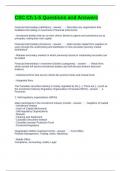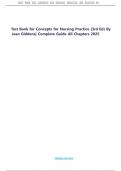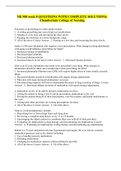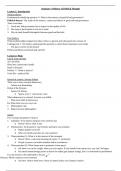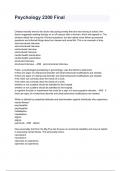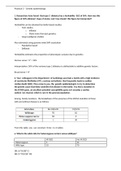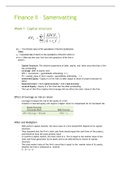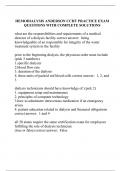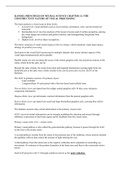Financial Intermediary (definition): - answer - Describes any organization that
facilitates the trading or movement of financial instruments
- Investment dealers that act on their clients' behalf as agents and sometimes act as
principals, risking their own capital
Financial Intermediary (functions): - answer - Help transfer capital from suppliers to
users through the underwriting and distribution of new securities (primary market
distribution)
- Maintain secondary markets in which previously issued or outstanding securities can
be traded
Financial Intermediary / Investment Dealers (categories): - answer - Retail firms
which include full-service investment dealers and self-directed brokers (discount
brokers)
- Institutional firms that service clients like pension funds and mutual funds
- Integrated firms
The Canadian securities industry is mainly regulated by the [...]. There are [...] such as
the Investment Industry Regulatory Organization of Canada (IIROC) - answer 1.
Provinces
2. Self-regulatory organizations (SROs)
Major participants in the Investment Industry include: - answer - Suppliers of Capital
- Investment Dealers
- Users of Capital (Borrowers)
- Self-regulatory Organizations
- Markets
- Clearing and Settlement
- Canadian Securities Institute
- Canadian Investor Protection Fund
- Provincial Regulators
Organization Within Investment Firms - answer - Front Office
Portfolio Management, Trading, Sales, Marketing
- Middle Office
Compliance, Accounting, Audits, Legal
,- Back Office
Trade Settlement
Most of the time, securities firms act as [...], buying and selling on behalf of clients [...] to
those securities.
Synonym: [...] - answer 1. Agents
2. Without taking title (ownership)
3. Broker
Securities firms tend to act as [...] in the [...] and in [...].
"Generally, for most secondary trading of debt securities, the investment dealer acts as
[...]." - answer 1. Principals
2. Underwriting function (primary market)
3. Secondary trading of non-equity securities
4. Principal
When acting as broker, a securities firm is an agent in a [...].
However, the term "broker" may be used interchangeably to describe an investment
dealer acting as a [...]. - answer 1. Secondary securities transaction
2. Principal or an agent
Services provided by the investment dealer include: - answer - Providing informed
advice about the terms and features for new issues in the primary market
- Adding liquidity to the market
- Acting as market makers in assigned listed stocks
- buying listed stocks as principals
During the day, an exchange member will buy and sell many different listed stocks. A
designated clearing systems handles the daily settlement process between members,
which means [...]. - answer Exchanging securities for cash
, Securities in Canada are cleared through [...]. Marketplaces like the TSX and TSX
Venture and ATSs report trades to [...]. Participants with access to the clearing system
include [...]. - answer 1. CDS Clearing and Depository Securities
2. CDSX clearing and settlement
3. Banks, investment dealers and trust companies
The clearing system [...] that has to change hands among the various members each
day.
The clearing system uses a process called [...] to establish and confirm a credit or debit
position. - answer 1. Reduces the number of securities and amount of cash
2. Netting
Banks operate under the Bank Act, which specifies [...].
Banks are the most important player in the Canadian Securities Industry and each Bank
is designated as either [...]. - answer 1. What they can and cannot do
2. Schedule I, Schedule II or Schedule III
Schedule I Banks - answer Most Canadian owned banks are designated as such.
There are ownership rules - voting shares must be widely held and subject to no more
than 20% ownership by any individual or group. There are 30 of these banks altogether.
Number of Schedule I banks and examples: - answer 30
Royal Bank, CIBC, TD, Bank of Nova Scotia, Bank of Montreal and National Bank
Schedule II Banks - answer Incorporated and operate in Canada, but are owned by a
foreign parent.
By law, may engage in all types of business permitted to a Schedule I Bank. However,
most derive their greatest share of revenue from retail banking and electronic financial
services.
Examples of Schedule II Banks - answer Citibank Canada, AMEX Bank of Canada
and BNP Paribas (Canada).
Schedule III Banks - answer Foreign bank branches of foreign institutions. These
banks tend to focus on corporate and institutional finance and investment banking.
Other Investment Industry Players: - answer - Trust and Loan Companies

